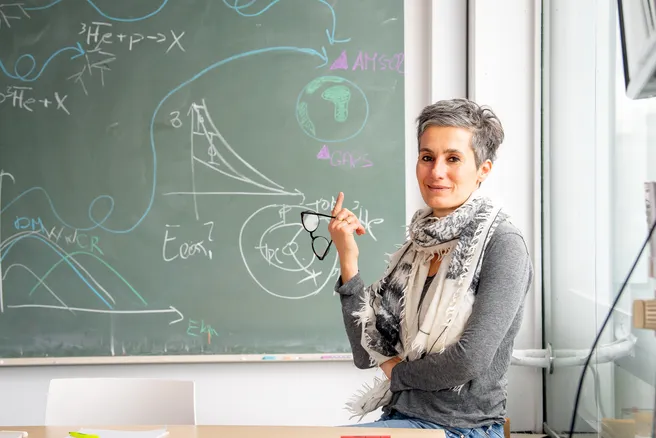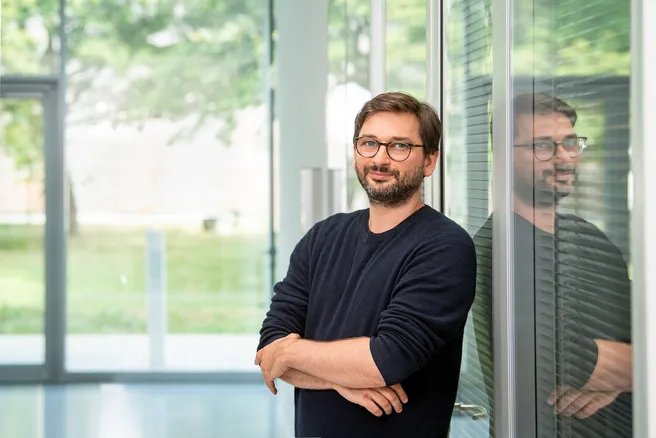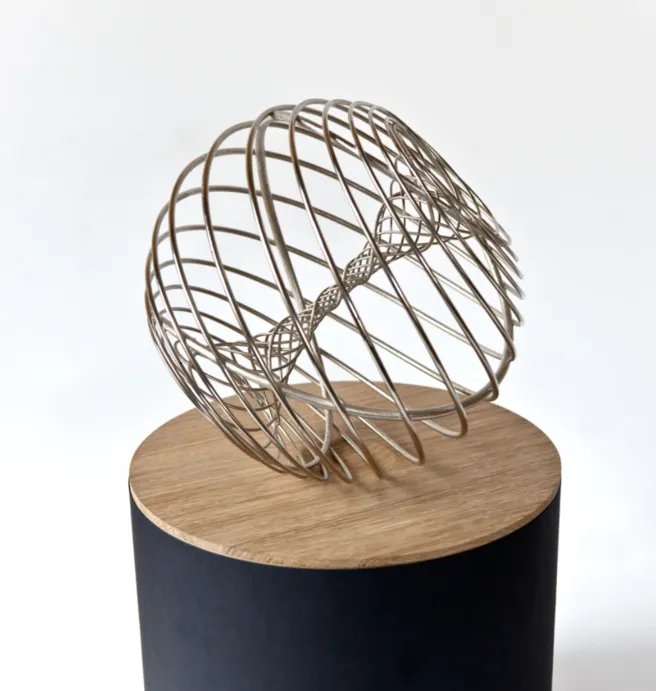The Breakthrough Prize Foundation announced on April 5 the winners of the 2025 Prize in Fundamental Physics, honoring scientists driving remarkable discoveries in the fundamental particles of the Universe and its underlying mathematical principles. At the TUM School of Natural Sciences, Prof. Laura Fabbietti and Prof. Lukas Heinrich are proud to be included in this award for their collaborative work at the LHC in ALICE and ATLAS projects, respectively. Both are members of the ORIGINS Cluster of Excellence, funded by the German Research Foundation.
Unusually this year, the US$3 million Breakthrough Prize for physics went to 13,508 researchers from over 70 countries, representing experimental collaborations at CERN’s Large Hadron Collider (LHC): ALICE, ATLAS, CMS, and LHCb. Heinrich explained why the list of recipients this year was so long, “Our research in ATLAS can only be done with such large-scale collaborations with hundreds of people.” With the 2025 award, a whole community of researchers gets recognition when other awards may otherwise recognize only 1 to 4 individuals.
Since the recipients list comes from co-authors of publications based on LHC Run-2 data released from 2015 to July 15, 2024, and not to a specific organization, the leaders of the LHC experiments agreed to donate 100 percent of the prize funds to the CERN & Society Foundation. The money will be granted to doctoral students from member institutes to spend research time at CERN, giving them valuable experience working at the forefront of science and new expertise to bring back to their home countries and institutions.
ATLAS, already well-known for announcing the discovery of the Higgs boson in 2012 with fellow awardee CMS, continues to investigate its properties, including general-purpose experiments that pursue the full program of exploration offered by the LHC’s high-energy and high-intensity proton and ion beams. The ALICE detector allows for studies of the quark-gluon plasma, a state of extremely hot and dense matter that existed in the first microseconds after the Big Bang. By performing these extraordinarily precise and delicate tests, such collaborative LHC experiments have pushed the boundaries of fundamental physics to unprecedented limits.
Fabbietti acknowledges the importance of CERN to the development of her research. “I profited enormously by participating in CERN. For me, it was a game-changer for my career. The quality of the data really provided us with the opportunity to do original work and connect it to global efforts,” she says. Heinrich, whose group is deeply involved in studying the Higgs boson and its role in the early universe, likewise described his involvement in the LHC as central to his career. “I’ve been a member of ATLAS for 15 years, and I brought that research line to TUM when I joined as a professor. It’s essential to my research line.”
The four awarded LHC experiments are recognized for testing the Standard Model of particle physics and other theories at high precision. This includes precisely measuring the Higgs boson's properties and deeper insights into how the Higgs field imparts mass to elementary particles. It also involves the investigation of extremely rare particle interactions and exotic states of matter that likely existed in the universe's earliest moments. Researchers have discovered over 72 new hadrons and examined subtle asymmetries between matter and antimatter. Studies have pushed the boundaries of the Standard Model, placing stringent constraints on theories of new physics, such as dark matter, supersymmetry, and hidden extra dimensions. The behavior of matter under extreme conditions of temperature and energy density has been explored, offering a window into the early universe and the formation of hadrons. Detailed analyses of hadron pair interactions are also shedding light on molecular state formation and the dynamics of hadrons interaction.
More information about the Breakthrough Prize
- Press release from Breakthrough Prize Foundation https://breakthroughprize.org/News/91
- CERN & Society Foundation https://cernandsocietyfoundation.cern/
More information and links about TUM recipients and collaborations
- Prof. Laura Fabbietti’s research group for Experimental Physics - Dense and Strange Hadronic Matter https://www.ph.nat.tum.de/denseandstrange/home/
- Prof. Lukas Heinrich’s research group for Data Science in Physics https://www.ph.nat.tum.de/en/ph/about/profs/lukas-heinrich/
- ORIGINS https://www.origins-cluster.de/en/
- A Toroidal LHC ApparatuS (ATLAS) https://atlas.cern/
- A Large Ion Collider Experiment (ALICE) https://alice.cern/
Press contact at Breakthrough Prize Foundation
media(at)breakthroughprize.org
Press contact at TUM


